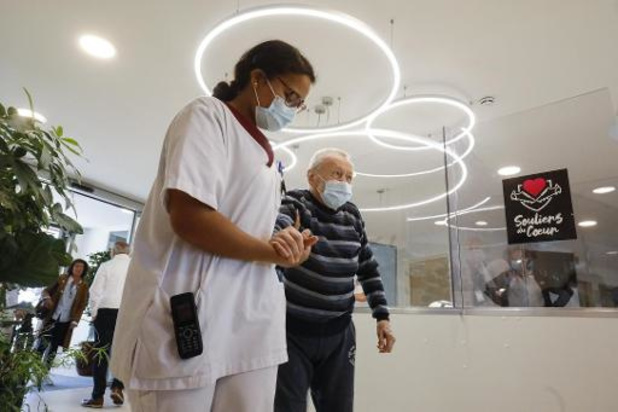The number of young people that opted to take a bachelor's degree course in healthcare in Flanders reached its highest level in years in 2021, which was marked by acute shortages in the medical labour market.
In 2021, 20,234 people signed up for healthcare bachelor's programmes at a university of applied sciences, an increase compared to previous years, especially when it comes to the intake for nursing, for which employers have had difficulty finding sufficient suitable candidates, according to a statement from the region's Health minister Wouter Beke.
Although he welcomed the growth in the number of people studying to get a degree in healthcare, a sector that has gained visibility among the younger generations due to the coronavirus crisis, he remains cautious.
'The shortage in the labour market is acute, especially in the healthcare sector. The message is clear: we need motivated people in care. Now, these figures are encouraging."
Related News
- Hospitals have to free up even more ICU beds for Covid-19 patients
- Coronavirus already cost Belgium's social security nearly €20 billion
According to the figures collected by Flemish Care Ambassador Lon Holtzer, there was an overall increase of 2.7% in the intake of students in medical degrees, ranging from speech therapy to psychology.
For nursing, an overall increase of 2.4% was recorded, as a total of 15,297 students applied to nursing degrees across Flanders. For the first time in years, the number of 18-year-olds opting for a bachelor's programme in nursing has risen by 7%.
Meanwhile, the intake for degrees for Covid-bound professions, such as medical laboratory technologist and applied psychology, increased by 18% and 22%, respectively, since 2019.
The rise in more senior students applying to attain a degree in the healthcare sector has also increased, as well as the number of people from diverse backgrounds.
More attractive jobs
The government is working on an action plan to ensure additional recruitment, including giving greater visibility of care and welfare courses in education, and an increase in the number of training paths to combine care and welfare courses with practical work.
"The corona pandemic has been anything but easy for these people. We have therefore rightly taken steps to make jobs in these sectors more attractive," Beke said, adding that ensuring people continue to choose a job in care and welfare plays a big role in this.
"Caring for vulnerable people in a qualitative way is and remains the big goal. It is a good thing that younger and older people are opting for care professions, and certainly for nursing or care studies as these are the main areas of shortage in the labour market," Holtzer said.
"But given the tight labour market, the current organisation of staffing in care also requires the necessary attention and innovation," she concluded.

